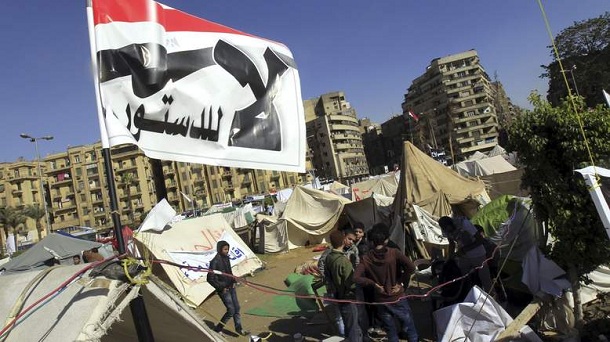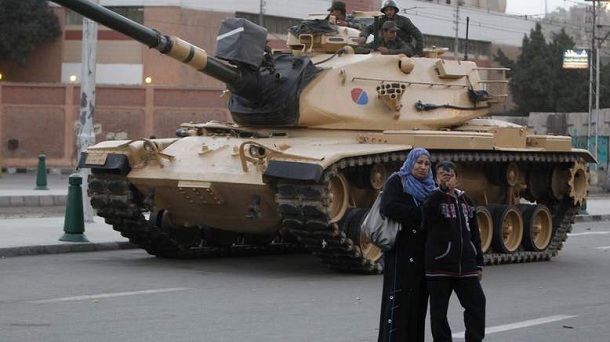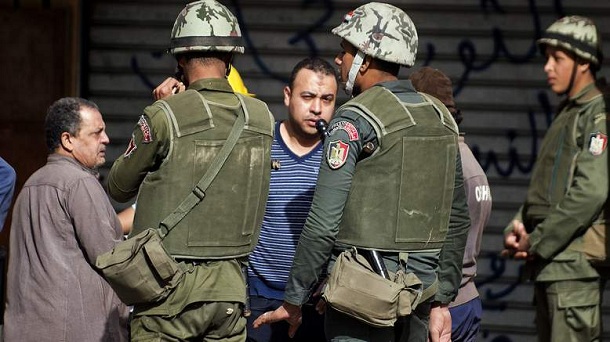
Masked gunmen have opened fire on opposition protesters in Cairo’s Tahrir Square, peppering them with birdshot and injuring nine of them.
Police cars surrounded the scene of the attack but officials said it was unclear who was responsible, as the unrest in the country heads into its third week.
It happened at the start of another day of protest against President Mohamed Morsi and his proposed new constitution.
According to witnesses, the gunmen also threw petrol bombs which started a small fire.
John Gerges, a Christian Egyptian, said: “The masked men came suddenly and attacked the protesters in Tahrir. The attack was meant to deter us and prevent us from protesting today.
“We oppose these terror tactics and will stage the biggest protest possible today.”
Further violent clashes are anticipated after Mr Morsi announced on Sunday that he will hold a referendum on the new constitution.

Opponents announced a day of protest saying the move was an empty gesture and that the new charter fails to guarantee basic rights with its emphasis on Islam and Sharia law.
President Morsi has ordered the Army to cooperate with police to tackle the protesters and protect presidential institutions until after the vote on Saturday.
Tanks and armed troops have surrounded the presidential palace in Cairo since Thursday after running street battles between Mr Morsi’s supporters and his opponents, which left seven dead and 700 injured.
Despite their presence they have not confronted the thousands of protesters who have gathered there.
The army took control of the country following the downfall of Hosni Mubarak’s regime but has since sought to remain a neutral force.
Mahmoud Ghozlan, the spokesman for Mr Morsi’s Muslim Brotherhood party, said the opposition could stage protests but should keep the peace.

“They are free to boycott, participate or say no; they can do what they want. The important thing is that it remains in a peaceful context to preserve the country’s safety and security,” he said.
The latest outbreak of violence in Egypt has sparked concern among Western leaders. They have criticised Mr Morsi’s attempt to adopt sweeping powers, which triggered the protests more than two weeks ago.
He reversed the decision at the weekend but his determination to push through a new and hastily drawn-up constitution has sparked fresh unrest.
If the new charter is rejected in Saturday’s vote, Mr Morsi has promised to have a new one produced by 100 officials chosen directly by the public rather than appointed by the Islamist-dominated parliament.
However, analysts say it is unlikely that the new constitution will not win support in a referendum.
[adrotate banner=”55″]
